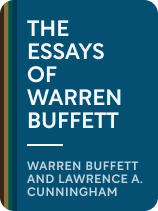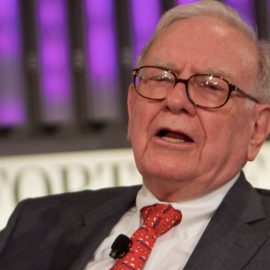

This article is an excerpt from the Shortform book guide to "The Essays of Warren Buffett" by Warren Buffett and Lawrence A. Cunningham. Shortform has the world's best summaries and analyses of books you should be reading.
Like this article? Sign up for a free trial here.
Why does Warren Buffett advise against portfolio diversification? What’s the problem with diversifying your investments? How does diversification hurt your return on investment?
Portfolio diversification is a sacred cow in the world of investing. However, the world’s most successful investor, Warren Buffett, scorns the idea of diversifying your portfolio to protect against risk.
Keep reading to learn about Warren Buffett, diversification, and why it’s better to have skin in the game.
Warren Buffett on Portfolio Diversification
According to Warren Buffett, diversification originates from academic models that equate risk with volatility and use diversification as a means to minimize the total volatility in your investments. As in EMT, this theory takes nothing into account except stock price—if a good company’s stock were to suddenly drop, this mode of thinking would label it risky and tell you not to buy it. Buffett defines risk as the odds of suffering financial harm and says the best way to avoid it is to put most of your money on a few safe bets—companies with good management and excellent long-term economics, no matter their short-term stock fluctuations.
(Shortform note: Portfolio diversification is a strategy of investing in a wide assortment of assets with the assumption that even if some go down in value, the ones that go up will offset your losses. In I Will Teach You to Be Rich, Sethi offers a general template for diversifying your portfolio. Investing in index and mutual funds brings with it automatic diversification, because those funds’ value depends on the performance of a multitude of assets. The problem with diversification is that while it offers the psychological value of reducing risk, it reduces your overall return on investment because weak assets undercut the value of those that do well.)
A glance at Berkshire Hathaway’s diversified holdings may make it look like Buffett doesn’t take his own advice. However, several factors must be noted. 1) As a holding company, Berkshire has far too much money to invest in only one place. 2) Most of its investments are in the form of majority shares in the businesses it owns—when Berkshire buys into a company, it commits a significant amount of capital instead of merely buying a few stocks as a hedge against market volatility. 3) Though Berkshire’s investments are widely diversified, Buffett’s personal holdings are not. Nearly all of Buffett’s wealth is in the form of Berkshire Hathaway stock.
(Shortform note: Warren Buffett’s investment advice regarding portfolio diversification is echoed by mathematician Nassim Nicholas Taleb in his book Skin in the Game, in which he presents an ethical argument for concentrated investing as opposed to diversification. Taleb claims that those who get rich by risking their wealth in creative endeavors—such as building a prosperous business—also enrich society as a whole, while those who minimize their risk as wealth increases aren’t motivated to add value back to the world. They simply ride on the coattails of others.)

———End of Preview———
Like what you just read? Read the rest of the world's best book summary and analysis of Warren Buffett and Lawrence A. Cunningham's "The Essays of Warren Buffett" at Shortform.
Here's what you'll find in our full The Essays of Warren Buffett summary:
- A glimpse into the mind of a man who disagrees with the typical Wall Street mogul
- Buffett's simple yet difficult insights on investing
- Why some of the most widely accepted economic practices are wrong






